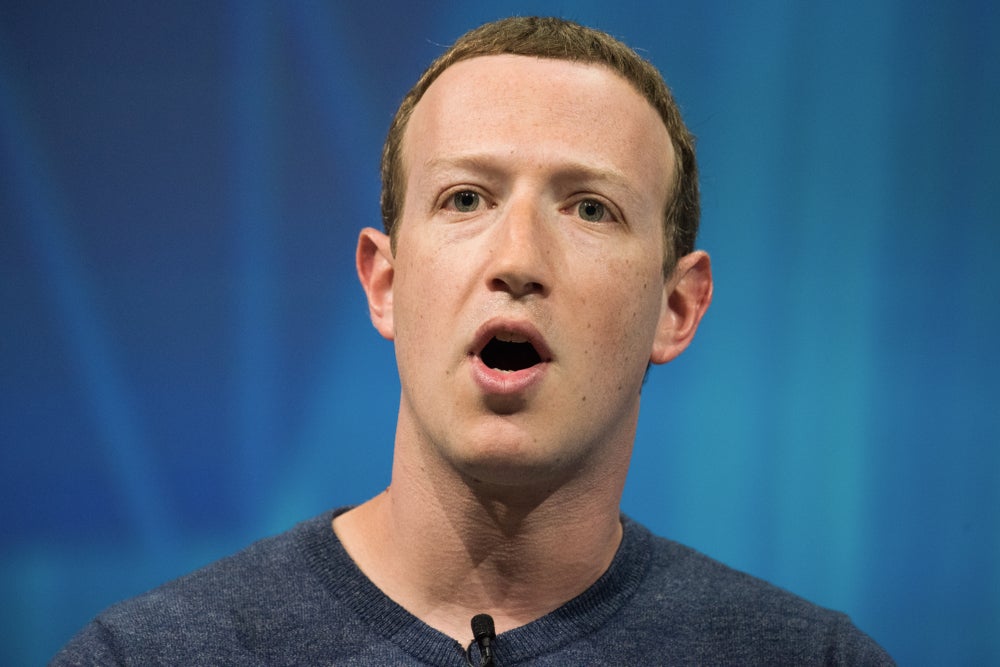
Meta has announced the release of new generative artificial intelligence (genAI) tools, including celebrity-voiced AI-powered assistants, in the hope of reviving interest in the struggling metaverse.
During Meta’s Connect conference on Wednesday (27 Sept), CEO Mark Zuckerberg demonstrated the new AI software alongside the company’s upcoming Ray-Ban smart glasses and the latest Meta Quest 3 VR headset.

Access deeper industry intelligence
Experience unmatched clarity with a single platform that combines unique data, AI, and human expertise.
Meta’s new AI digital assistant tool is the company’s answer to OpenAI’s ChatGPT, similarly generating answers to users’ questions via text.
According to Zuckerberg, the assistant can access Microsoft’s search engine Bing to pull information from the internet, which will allow for updates on breaking news.
Plans for the generative AI assistants are tied with Meta’s hopes for metaverse success. Zuckerberg said that in the future, once the metaverse is built, users will be able to interact with the AI-powered helpers in real-time.
Meta has enlisted the voices of several celebrities, including Kendall Jenner and Snoop Dogg, who represent digital characters that users can interact with.

US Tariffs are shifting - will you react or anticipate?
Don’t let policy changes catch you off guard. Stay proactive with real-time data and expert analysis.
By GlobalDataZuckerberg demonstrated playing a game of Dungeons and Dragons with narration from Snoop Dogg, for example.
Besides the gimmick, the social media giant said it will be testing the ability to create personalised digital assistants with select businesses before rolling it out completely.
Zuckerberg has had limited success with his metaverse dreams since he revamped the focus of Meta, formerly Facebook, to focus on building the all-encompassing technology.
Meta’s Reality Labs division, the hub for the company’s virtual reality (VR) projects and tech, posted a whopping $4.28bn loss in its fourth quarter, according to its earnings report in October. This brought its total loss amount to just over $13bn in 2022.
Zuckerberg had spoken very little about AI when discussing the metaverse previously, and is now banking on the new wave of excitement surrounding generative AI to bolster interest in the metaverse.
Generative AI hiring has been on a mostly upward trajectory since the beginning of 2022.
Hiring in generative AI peaked in December 2022 with 3598 hires globally, the month following the release of OpenAI's generative AI chatbot released, according to GlobalData's Job database.
The wildly popular chatbot gecorded 100 million monthly active users in January, as people flocked to the app for help with editing documents, creating code and more.
Throughout 2023, generative AI hiring stayed at a steady climb until a huge spike 3,117 hires in June, falling just below the peak of December 2022.
Zuckerberg said on Wednesday that the company’s AI investments were all linked in building the foundation for the metaverse.
Zuckerberg also noted the role AI will play in the company’s upcoming RayBan smart glasses.
The $299 augmented reality gasses will have Meta’s AI software built into the frames, giving users the ability to identify landmarks and translate signs, according to the CEO.
“Before this last year of AI breakthroughs, I kind of thought that smart glasses were only really going to become ubiquitous once we really dialed in, you know, the holograms and the displays and all of that stuff, which we’re making progress on,” Zuckerberg said.







